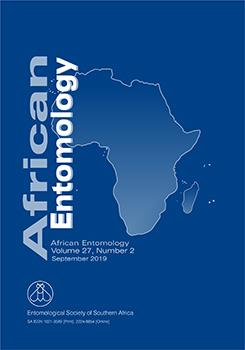The present study aimed to evaluate the inherited deleterious effects and protein response of Musca domestica to LD50 of gamma irradiation through three generations at different cross combinations (irradiated female (IF) × irradiated male (IM), unirradiated female (UIF) × irradiated male, and irradiated female × unirradiated male (UIM)). Gamma radiation induced a significant effect on the reproductive potential of M. domestica through the first three generations, where the sterility index was higher than those of the untreated control, especially in F1 and F2 generations. The great inherited deleterious effects occurred when IM × IF and when IM × UIF indicating that the male of M. domestica is more radiosensitive than the female. The electrophoretic separation of protein bands in the third larval instar of M. domestica resulted from different matings (irradiated and unirradiated males and females) vs control was investigated in the present study. The control larvae recorded the highest number of protein bands (27), while the larvae resulted from crossing of UIF × IM (LD50 = 5 Gy) contained the lowest number of protein bands (14). However, the number of protein bands in larvae resulted from crossing of IF × UIM (LD50 = 7 Gy) was 24 bands also the number of bands resulted from crossing IF × IM (LD50 = 4 Gy) was 21 bands. In addition, the results showed that the type of mating affects the distribution of protein bands, where some protein bands appeared and others disappeared in third larval instar resulted from the different irradiated and unirradiated males and females. These results may indicate that males of M. domestica are more radio sensitive than females where the lowest number of bands was separated in larvae resulted from IM × UIF. Consequently, these radiation doses are recommended for the establishment of Male Sterile Insect Technique (SIT) programmes against M. domestica.
BioOne.org will be down briefly for maintenance on 17 December 2024 between 18:00-22:00 Pacific Time US. We apologize for any inconvenience.
How to translate text using browser tools
4 October 2019
Inherited Deleterious Effects and Protein Response of Musca domestica Linnaeus, 1758 (Diptera: Muscidae) to Gamma Irradiation
M. Fouda,
A. Gabarty,
H.M. Salem,
M. Zearia,
W. Ismail
ACCESS THE FULL ARTICLE
It is not available for individual sale.
This article is only available to subscribers.
It is not available for individual sale.
It is not available for individual sale.

African Entomology
Vol. 27 • No. 2
October 2019
Vol. 27 • No. 2
October 2019
gamma irradiation
inherited sterility
Musca domestica
Protein





